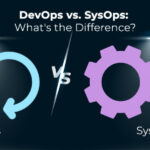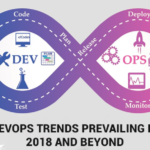A CMS or more specifically a Web Content Management System is a software system that provides Website authoring, collaboration, and administration tools designed to allow users with little knowledge of Web programming languages or markup languages to create and manage Website content with relative ease. A robust WCMS provides the foundation for collaboration, offering users the ability to manage documents and for multiple author editing and participation. Most systems use a database to store page content, metadata, and other information. The following Content Management Systems are mainly written in PHP scripting language.-
Joomla
An open source CMS with roots dating back to 2002, Joomla has long ranked among not only the PHP community’s but also the world’s most popular content management systems. Offering a wide range of features within the core download, Joomla offers everything a developer will need to create a community-driven web site. Joomla is very similar to Drupal in that it’s a complete CMS, and might be a bit much for a simple portfolio site. It comes with an attractive administration interface, complete with intuitive drop-down menus and other features. The CMS also has great support for access control protocols like LDAP, OpenID and even Gmail.com. The Joomla theme and extension community relies more on paid plugins and themes, so if you’re looking for customizations, be ready to pay.
Drupal
Drupal is another CMS that has a very large, active community. Instead of focusing on blogging as a platform, Drupal is more of a pure CMS. A plain installation comes with a ton of optional modules that can add lots of interesting features like forums, user blogs, OpenID, profiles and more. It’s trivial to create a site with social features with a simple install of Drupal. In fact, with a few 3rd party modules you can create some interesting site clones with little effort. One of Drupal’s most popular features is the Taxonomy module, a feature that allows for multiple levels and types of categories for content types.
SilverStripe
SilverStripe is a PHP CMS built with Sapphire framework, and it uses MVC design pattern. you can view example sites that built with SilverStripe from the official website. SilverStripe also has some interesting features built in to the base, like content version control and native SEO support. What’s really unique with SilverStripe is that developers and designers can customize the administration area for their clients, if need be. While the development community isn’t as large as other projects there are some modules, themes and widgets to add functionality. Also, you’ll want to modify the theme for each site, as SilverStripe doesn’t provide much in terms of style, to give the designer more freedom.
ExpressionEngine
It is an elegant, flexible CMS solution for any type of project. Designed to be extensible and easy to modify, EE sets itself apart in how clean and intuitive their user administration area is. It takes only a matter of minutes to understand the layout of the backend and to start creating content or modify the look. It’s fantastic for creating websites for less-than-savvy clients that need to use the backend without getting confused.
ExpressionEngine is packed with helpful features like the ability to have multiple sites with one installation of software. For designers, EE has a powerful templating engine that has custom global variables, custom SQL queries and a built in versioning system. Template caching, query caching and tag caching keep the site running quickly too.
Mambo
Mambo is a full-featured, award-winning content management system that can be used for everything from simple websites to complex corporate applications. Although some Mambo sites had already migrated to Joomla, but i think i should include Mambo as it is still a great CMS.
A CMS should be built for the people who are going to edit it. This approach means the developer doesn’t have to spend tons of time helping the client edit the website. If it’s intuitive, your CMS will bring you new clients via word of mouth from current clients. However, a good CMS also needs to be easy to work with and should extend great help for the developer.
For highly competitive pricing and excellent web hosting support services do contact InstaCarma today!















